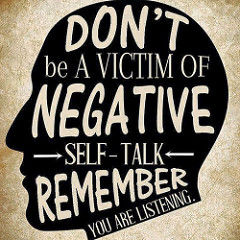How to Handle Depression
Depression is a common mental health disorder that can cause a wide range of symptoms, including sadness, fatigue, changes in appetite, and difficulty concentrating. It can be a debilitating condition that can make it difficult to function in everyday life.
There are many different ways to handle depression, and what works for one person may not work for another. However, there are some general tips that can help you cope with depression and improve your quality of life.
1. Talk to someone.
One of the best things you can do if you are struggling with depression is to talk to someone about how you are feeling. This could be a friend, family member, therapist, or other trusted individual. Talking about your feelings can help you to understand them better and to get support from others.
2. Take care of yourself.
When you are depressed, it can be easy to neglect your physical and emotional health. However, it is important to make sure that you are taking care of yourself. This includes eating a healthy diet, getting enough sleep, and exercising regularly. Taking care of yourself can help to improve your mood and energy levels.
3. Set realistic goals.
When you are depressed, it can be difficult to get motivated to do anything. However, it is important to set realistic goals for yourself. This could be something as simple as getting out of bed in the morning or taking a shower. Setting realistic goals can help you to feel a sense of accomplishment and to build your self-esteem.
4. Avoid negative self-talk.
When you are depressed, it is common to engage in negative self-talk. This could include thoughts such as "I'm a failure" or "I'm never going to get better." However, it is important to challenge these negative thoughts. Remind yourself of your strengths and accomplishments. Focus on the positive aspects of your life.
5. Find something that you enjoy.
When you are depressed, it can be difficult to find joy in anything. However, it is important to find something that you enjoy doing. This could be anything from reading to listening to music to spending time in nature. Finding something that you enjoy can help to lift your spirits and to give you a sense of purpose.
6. Get professional help.
If you are struggling to cope with depression on your own, it is important to get professional help. A therapist can help you to understand your depression and to develop coping strategies. They can also provide you with support and guidance.
Managing depression can be a challenge, but it is possible to overcome it. By following these tips, you can start to improve your mood and your quality of life.
Here are some additional tips for handling depression:
- Join a support group. Talking to other people who understand what you are going through can be very helpful. There are many different support groups available, both online and in person.
- Read self-help books or articles. There is a lot of helpful information available about depression. Reading about other people's experiences can help you to feel less alone and to learn new coping strategies.
- Practice mindfulness. Mindfulness is the practice of paying attention to the present moment without judgment. It can be a helpful way to reduce stress and improve your mood. There are many different ways to practice mindfulness, such as meditation, yoga, or simply taking a few minutes each day to focus on your breath.
- Take breaks. When you are feeling overwhelmed, it is important to take breaks. This could mean taking a few minutes to relax, going for a walk, or doing something else that you enjoy. Taking breaks can help you to recharge and to come back to your tasks feeling refreshed.
Remember, you are not alone. Depression is a common condition, and there are many people who can help you to cope with it. By following these tips, you can start to improve your mood and your quality of life.
Different viewpoints on depression coming from different fields of study:
- Psychology: Psychologists view depression as a mental illness that is caused by a combination of factors, including genetics, biology, and environmental stressors. They believe that depression can be treated with therapy, medication, or a combination of both.
- Biology: Biologists believe that depression is caused by imbalances in the brain's neurotransmitters, such as serotonin and dopamine. They believe that depression can be treated with medication that helps to regulate these neurotransmitters.
- Social work: Social workers view depression as a social problem that is caused by factors such as poverty, discrimination, and trauma. They believe that depression can be treated by addressing these social factors, as well as providing individual therapy and support.
- Philosophy: Philosophers view depression as a complex phenomenon that can be understood from a variety of perspectives. They believe that depression is not simply a medical illness, but also a philosophical problem that raises questions about the meaning of life, the nature of suffering, and the role of hope.
It is important to note that there is no single, all-encompassing view of depression. Different fields of study offer different perspectives on the disorder, and each perspective can offer insights that can help to improve our understanding of depression and its treatment.
Here are some additional viewpoints on depression from different fields of study:
- Neuroscience: Neuroscientists believe that depression is caused by changes in the brain's structure and function. They believe that these changes can be caused by genetics, environmental factors, or a combination of both.
- Epidemiology: Epidemiologists study the distribution and determinants of health and disease in populations. They have found that depression is more common in some populations than others, and that there are a number of factors that can increase the risk of depression, such as poverty, discrimination, and trauma.
- Cultural anthropology: Cultural anthropologists study the different ways that people in different cultures experience and understand depression. They have found that depression is not experienced in the same way in all cultures, and that the symptoms of depression can vary depending on the cultural context.
These are just a few of the different viewpoints on depression that come from different fields of study. By understanding the different perspectives on depression, we can gain a more comprehensive understanding of the disorder and its treatment.




























































